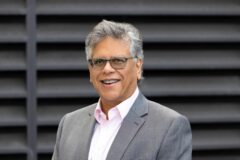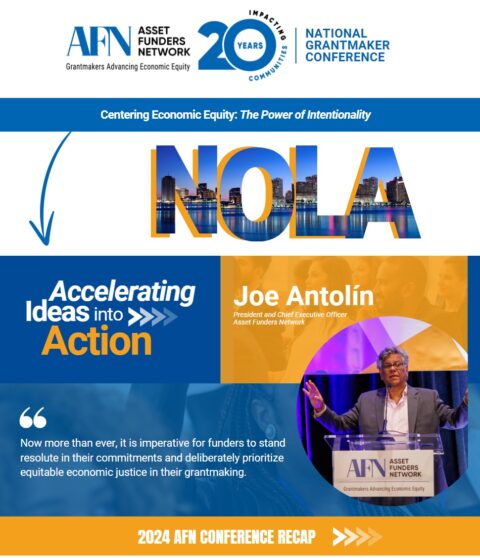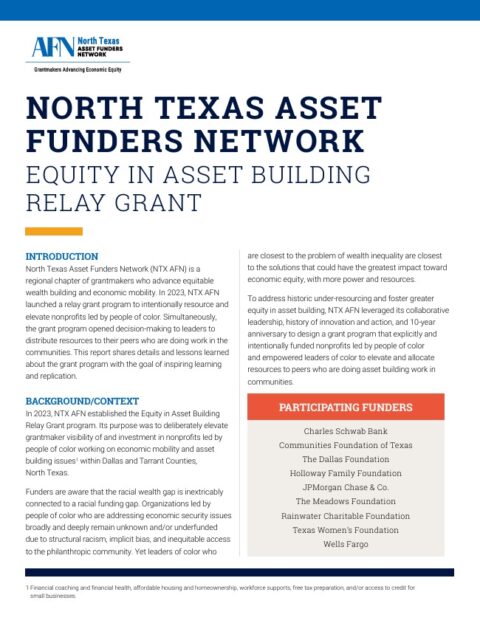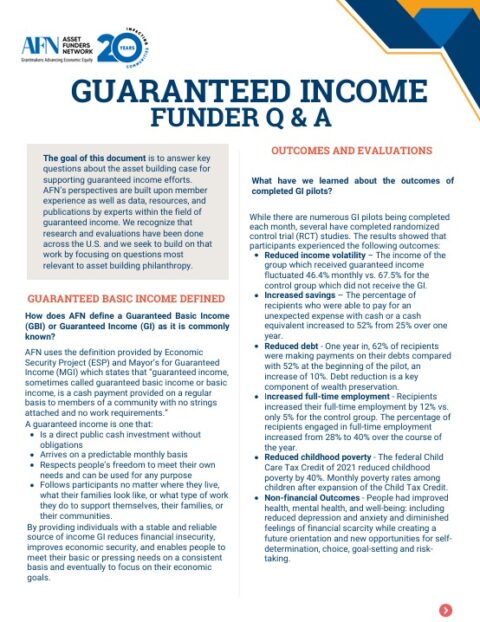A MESSAGE FROM AFN CO-CHAIRS AND PRESIDENT & CEO
MAY 2022


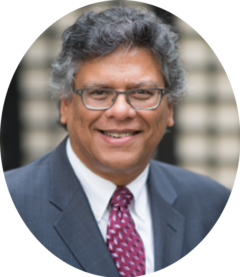
The economic promise of America is one that has the capacity for continuing to expand the economic pie by including everyone’s contributions and committing to racial justice. It is a theory of abundance. When everyone has the equitable opportunity to maximize their economic potential and fully engage in the economy, we all benefit.
This month, we recognize and celebrate the varied and powerful contributions of the many Asian American, Native Hawaiian, and Pacific Islander communities in our nation. Their leadership is seen and felt in every aspect of our communities— from small business to higher education, as well as community building, and commitment to economic justice are undeniable. Their inclusion in the overall fabric of our communities and economy positively impacts us all.
But it would be wrong not to recognize the justice eroding and opportunity depriving cancer poised against all people of color, Jews, and especially Black Americans. We all are understandably incensed at the harm done to families and communities by yet another member infected by the societal cancer that fears inclusion and economic racial justice. Once again, we need to reflect on the victims and express our heartfelt sorrow. Just this past week, a hate crime shooting was directed against Korean Americans in a beauty salon in Dallas.
And at the end of the week, in Buffalo, innocent Americans engaged in the universal economic activity of shopping for food, were targeted by a hate-fueled white supremacist justifying his murdering of Blacks because of the cowardly racist ideology known as replacement theory. His actions were not those of a loner, or due to mental illness, but were motivated and fueled by irresponsible leaders using media platforms and a community of racist persons, who believe and reinforce that the economy and their power is defined by their caste classification as White and that is at risk if justice prevails. Indeed, their fear of losing an undeserved superiority is underpinned with an economic theory of scarcity. The economic pie for them is only so big and it should be theirs — any slices for Black, Latinx, AAPI, Jews, Arabs, Indigenous and others who are not white in their eyes means Whites lose opportunity, security, and power. AFN and our members explicitly reject narrow, racist and cancerous scarcity fueled views.
To achieve an inclusive, abundant economy includes acting to dismantle the systemic advantages given to one race over others. AFN’s commitment is to invest in and the value of strategies that equitably expand opportunity to build disposable income and wealth, and ultimately to repair the harm to those intentionally disadvantaged in the economy throughout our history. Prosperity for all requires nothing less.
At AFN, we recently partnered to develop a Primer on Guaranteed Income. It provides the basics to better inform funders. When the strategy is scaled (as we briefly experienced with the Child Care Tax Credit expansion in 2021), economic security increases, poverty lessens, and households use that income to move to better paying jobs, to reduce debt, to invest in their career, to save for their child’s higher education, and to build assets. Most industrialized countries invest in their populations, especially children. Philanthropy should push for this investment at scale. Let’s recognize the demographic facts — if we focus on families with children, the majority are and will be children of color. This is a key place to start to achieve the equity goal to maximize their future economic activity and contributions to an equitable prosperity from which we all benefit.
The recent survey of mayors across the country, commissioned by The Rockefeller Foundation, reflected their understanding of the need to support and achieve an abundant, inclusive economy. Cities need philanthropy to target innovation and to provide disaggregated data to foster inclusive prosperity and capacity, while cities themselves commit to undo the extractive, exclusionary or legacy discrimination in their systems from fees and fines, debt collection, and regressive taxes.
AFN’s mission and commitment is to continue to explore the economic strategies and engines that produce an abundant economy and reject cancerous scarcity frameworks. Help us make this happen. Join AFN’s learning community, support our advocacy, increase the number and potential of our regional chapters, and fully participate in the discussions and inform investment strategies.


